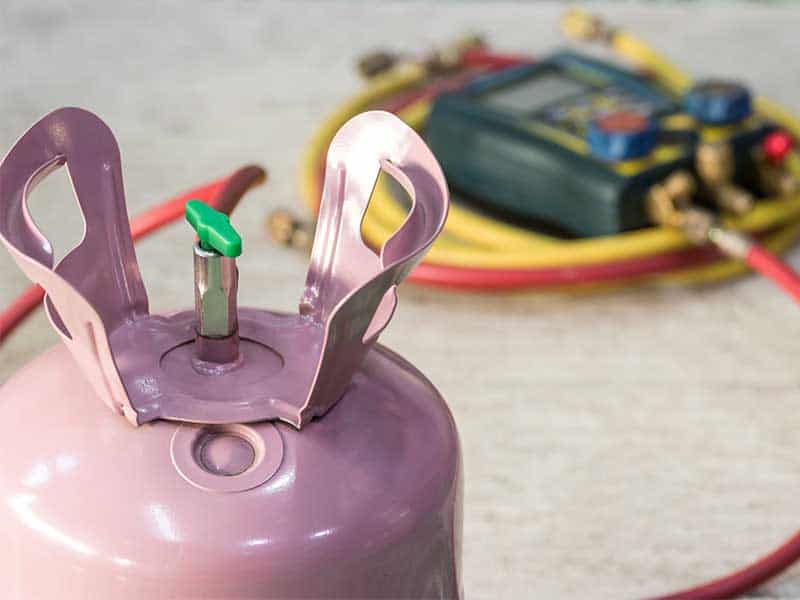
Many readers will remember how chlorofluorocarbons (CFCs) were banned in aerosol cans—hairspray was a common application—because of how they affected the ozone layer. However, many don’t realize that CFCs weren’t the only substance causing a hole to form in the ozone layer of our atmosphere. Today, R22, one of the most common refrigerants, is now being banned for manufacture and sale. What does this mean for you? Read on to find out.
What Is R22?
In chemical terms, R22 is otherwise known as chlorodifluoromethane or difluoromonochloromethane. To bring this down to earth, we can categorize it as a hydrochlorofluorocarbon or HCFC.
HCFCs like R22 have a similarly damaging effect on the ozone layer as the CFCs banned decades ago in aerosol cans. Many might have thought the initial ban solved the problem but, if we know anything about industrial manufacturing in the past century or so, not every chemical has been environmentally friendly.
R22 was introduced in the 1950s and for decades was used as the primary refrigerant for most air conditioning systems. Like so many other inventions in this era, what seemed to be somewhat of a miracle at the time was soon in nearly every AC unit attached to peoples’ homes.
This is also a reason the substance is growing in use in developing countries. In fact, a New York Times story from 2012 noted that air conditioner sales in China and India are growing at a rate of 20% annually. Normally it wouldn’t make sense to bring up an 8-year-old source, but it demonstrates there really is a problem—a problem that has surely gotten worse.
When Does the R22 Phase-Out Go Into Effect?
As of Jan. 1 of 2020, the manufacture and sale of R22 has been banned in the United States. It’s important to note that the use of R22 has not been banned. Environmental Protection Agency officers won’t be going around to each house in your neighborhood conducting inspections of your AC units.
Can You Still Buy R22 Freon?
What the R22 ban actually means is you will no longer be able to acquire fresh R22 to put in your AC unit. In other words, the average building owner will most likely never even realize a new refrigerant is required. Luckily, React Industries has the expertise to keep your building cool while remaining compliant with all state and federal requirements.
There’s quite a bit of misinformation out there about the 2020 freon change. React Industries can cut through the mess and keep you cool doing it.
R22 Alternatives
Depending on the size and application of the air conditioning system at your facility, a number of alternative refrigerants make sense. React Industries has experience working with large facilities and small buildings alike, meaning we can find the perfect HVAC solution for you. Whether you’re interested in switching out the refrigerant in your unit or are building an entirely new system from scratch, we can handle every aspect of the project.
If you’re asking yourself, “Does this mean all my old equipment needs to be replaced?” It doesn’t. While we would love to take on major projects when necessary, the R22 ban does not doom all legacy mechanical systems.
One of our areas of expertise is conducting preventive maintenance and retrofitting our clients’ systems to help them comply with environmental regulations. If the EPA is looking to ban ozone-depleting substances, we’re all for it. The important thing is our clients can rest assured their mechanical contractor is up to the task. Make sure to contact us today if you have any concerns about your AC system, or if you have any HVAC questions in general.